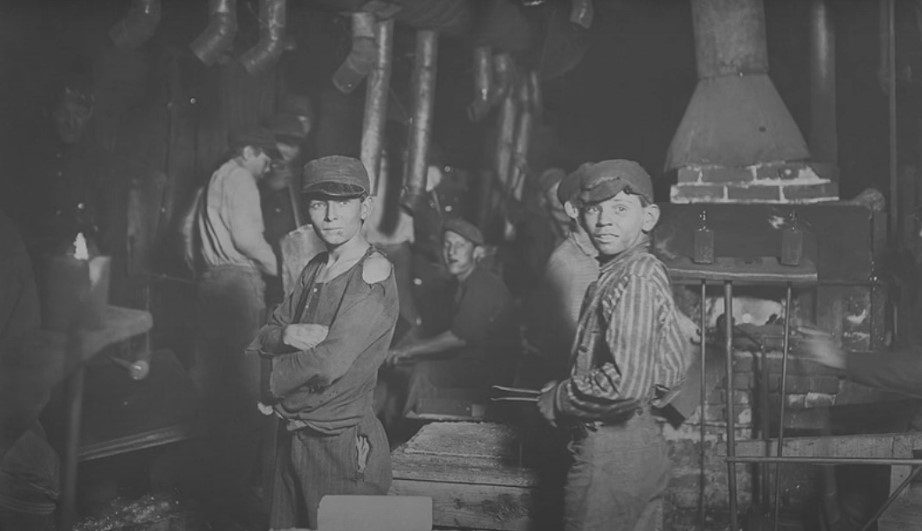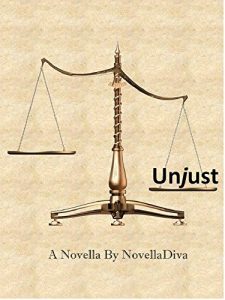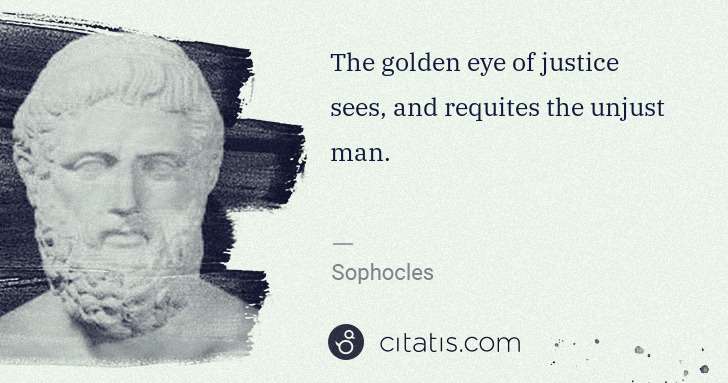
The inhumane conditions in which people had to work in the factories in Aalst during that time.
Page Description
Discover the historical drama of
Priest Daens,
a progressive Catholic priest
in 19th-century Aalst, Belgium,
who fought against injustice
and inequality.
The Story of Priest Daens: Unjust Justice in 19th Century Belgium
In the heart of 19th century Belgium, a deeply rooted social injustice was challenged by an unlikely hero: Priest Adolf Daens. His relentless fight against the exploitation of workers and the corruption within the system serves as a powerful reminder of the struggles faced by those who dare to confront authority in the pursuit of fairness.
Priest Daens, a man of faith and conviction, exposed the harsh realities faced by the industrial poor in the town of Aalst, where child labor, dangerous working conditions, and societal inequalities were rampant. Despite his efforts to bring attention to the plight of the vulnerable, the justice system and those in power turned a blind eye, leaving Daens to face both personal and professional hardships.
Through his story, we reflect on the broader theme of “unjust justice,” where systems designed to protect are often the very ones that oppress. The tale of Priest Daens reminds us of the importance of standing up for the marginalized, speaking truth to power, and fighting for a more just society, even when the odds seem insurmountable.
Het Verhaal van Priester Daens: Onterecht Gerechtigheid in 19e Eeuws België”
In het hart van 19e-eeuws België werd een diepgeworteld sociaal onrecht uitgedaagd door een onwaarschijnlijke held: Priester Adolf Daens. Zijn onophoudelijke strijd tegen de uitbuiting van arbeiders en de corruptie binnen het systeem is een krachtig bewijs van de strijd die zij voeren die de autoriteit durven te confronteren in de zoektocht naar rechtvaardigheid.
Priester Daens, een man van geloof en overtuiging, onthulde de harde realiteit waarmee de industriële armen in de stad Aalst werden geconfronteerd, waar kinderarbeid, gevaarlijke werkomstandigheden en maatschappelijke ongelijkheid wijdverspreid waren. Ondanks zijn inspanningen om de ellende van de kwetsbaren aan te kaarten, sloot het rechtssysteem en de machthebbers hun ogen, waardoor Daens zowel persoonlijke als professionele moeilijkheden moest doorstaan.
Zijn verhaal werpt een bredere blik op het thema “onterecht gerechtigheid”, waarbij systemen die bedoeld zijn om te beschermen vaak degenen onderdrukken die zij zouden moeten helpen. Het verhaal van Priester Daens herinnert ons aan het belang van opkomen voor de gemarginaliseerden, het spreken van de waarheid tegen de macht en het vechten voor een rechtvaardiger samenleving, zelfs wanneer de kansen schier onoverkomelijk lijken.
1 Father Daens returns to his hometown of Aalst
Aalst, 1888. After a conflict with Bishop Stillemans, Father Daens returns to his hometown of Aalst where the textile industry is under great pressure.
The story of Daens depicts the struggle that Father Adolf Daens, together with his brother, the journalist/publisher Pieter, waged against poverty and the oppression of the proletariat in Belgium at the end of the nineteenth and the beginning of the twentieth century.
In 1891, they founded the Christian People’s Party, with which Adolf and Pieter aimed to offer an alternative to the heathen socialism and the socially insensitive Catholic party.
Their initiative faced fierce resistance from the ruling class, which was supported by the Catholic Church. A life-and-death struggle ensued. In the church, believers were incited against the Daensists. The weekly newspaper De Werkman, written by Pieter Daens, was banned. Adolf Daens was summoned to the bishop and the pope and – to his great sorrow – was removed from his ecclesiastical office as a priest.
Daens’ Sermon on Universal Suffrage [Priest Daens – 1992]
31 aug 2021
I’m adding this video, which is an excerpt of a brilliant Belgian movie, for all of my American homies. This movie is absolutely crucial to the middle/high school education of children here in Belgium. Everyone and their mother has seen it here, and thankfully that means that most of us are aware of the horror of unfair working conditions.
This one goes out to all the retail workers, nurses, nursing home staff, teachers, service industry peeps, manual laborers,…
I hope you vibe with this.
Also you deserve so much better.
Letterboxd summary:
“In the 1890s, Father Adolf Daens goes to Aalst, a textile town where child labor is rife, pay and working conditions are horrible, the poor have no vote, and the Catholic church backs the petite bourgeoisie in oppressing workers. He writes a few columns for the Catholic paper, and soon workers are listening and the powerful are in an uproar. He’s expelled from the Catholic party, so he starts the Christian Democrats and is elected to Parliament. After Rome disciplines him, he must choose between two callings, as priest and as champion of workers. In subplots, a courageous young woman falls in love with a socialist and survives a shop foreman’s rape; children die; prelates play billiards.”
2 Some key points of the film Priest Daens
“Priest Daens” is a 1992 Flemish film directed by Stijn Coninx, based on the novel “The Awakened Conscience” by Louis Paul Boon. The film is a historical drama set in the late 19th century in Aalst, Belgium, and tells the story of Father Adolf Daens, a progressive Catholic priest who fought for the rights of the working class.
Here are some key points of the film:
Father Adolf Daens returns to Aalst and becomes a parish priest, where he is shocked by the living and working conditions of the working-class population in the city’s textile mills.
Daens becomes a political activist, starting his own newspaper and forming the Christian Democratic Party to represent the working class in Parliament.
Daens clashes with the conservative Catholic establishment and the wealthy textile factory owners, who oppose his progressive views and social activism.
Daens becomes a leading voice in the struggle for workers’ rights and social justice, advocating for better wages, shorter working hours, and safer working conditions.
The film depicts the violent conflict between the workers and the factory owners, culminating in a strike and a bloody confrontation between the workers and the police.
The film also explores the complex relationships between Daens and his brother, a conservative priest who opposes his activism, and between Daens and his lover, a young woman who works in the textile mills.
Overall, “Priest Daens” is a powerful portrayal of social injustice and the struggle for change, as well as a tribute to the courage and perseverance of those who fought for workers’ rights in Belgium’s industrial revolution.
3 Filmfragment Daens verschillen arbeiders-burgerij
1 jul. 2014
Aanbevolen door Menuet Productiehuis
Expoza
4 Filmfragment Daens verschillen arbeiders-burgerij
1 jul. 2014
Aanbevolen door Expoza
6 Daens2
7 Daens 3
10 Daens – Making Of
“Priest Daens” likely refers to Adolf Daens, a historical figure who was a Belgian Catholic priest and social activist in the late 19th century. Daens was known for his advocacy on behalf of the working class, particularly the poor and marginalized, during the Industrial Revolution period in Belgium. Here are some key points associated with Priest Daens:
Social activism: Priest Daens was known for his strong social activism, particularly in advocating for the rights and welfare of the working class. He fought against social injustice, exploitation of workers, and poor living conditions, and spoke out against the disparities between the wealthy and the poor.
Political engagement: Priest Daens was politically active and founded the Christian Democratic Party in Belgium, known as the Daensist Party, which aimed to promote social justice and the interests of the working class. He sought to address social and economic issues through political means and was elected as a member of parliament in Belgium.
Pro-labor stance: Priest Daens supported the labor movement and sought to improve the working conditions of industrial workers. He criticized the harsh working conditions, low wages, and long working hours that were prevalent during the Industrial Revolution, and called for reforms to protect the rights and well-being of workers.
Catholicism and social justice: Priest Daens emphasized the teachings of the Catholic Church on social justice and advocated for the Church’s involvement in addressing social issues. He argued that the Church should play an active role in promoting social and economic justice, and he challenged the hierarchical structure of the Church that he believed neglected the concerns of the poor.
Controversy and opposition: Priest Daens faced opposition from various quarters, including from conservative elements within the Catholic Church and the political establishment. He was often criticized for his outspoken views and faced resistance from those who opposed his progressive ideas and social activism.
It’s important to note that the specifics of Priest Daens’ teachings and beliefs may vary depending on the historical context, sources, and interpretations. It’s always recommended to refer to reliable and authoritative sources for a comprehensive understanding of historical figures and their teachings.
Priester Adolf Daens
18 nov 2017
Een van de meest succesvolle Belgische films is zeker “Daens”, de film van Stijn Coninx. Vijfentwintig jaar geleden werd de film uitgebracht, onlangs werd de film gerestaureerd. Het is een film die niemand onberoerd laat. De film gaat over het leven van Priester Adolf Daens (1839-1907). Priester Daens was getroffen door de mensonwaardige omstandigheden waarin de arbeiders in die tijd moesten werken in de fabrieken in Aalst. Hij heeft niet passief toegekeken maar heeft zich politiek geëngageerd, hij werd volksvertegenwoordiger. Dat werd hem niet door iedereen in dank afgenomen, zeker niet door de kerkelijke en de politieke overheden. Hij kreeg zelfs het verbod zijn priesterschap in het openbaar uit te oefenen. Nog maar een paar jaar geleden, meer dan 108 jaar na zijn dood is er eerherstel gebracht aan Priester Daens door Aartsbisschop Léonard die toen verklaarde: “In zijn strijd voor het arme volk nochtans behield hij altijd zijn geloof en is hij trouw gebleven aan de leer van de Kerk. De priester voerde een goede strijd voor de arbeiders, die schandelijk werden uitgebuit. Ze werden blootgesteld aan de misbruiken van hun bazen en aan de arrogantie van hun volksvertegenwoordigers die hun taal – het Vlaams – misprezen”.
Die film Daens mag voor elk van ons meer dan een weergave zijn van een periode uit onze geschiedenis. Wat elk uit die film over het leven van Priester Daens mag meenemen is dat christen-zijn meer is dan een band met Jezus Christus hebben in het gebed en het ontvangen van de Sacramenten. Je levende relatie met de Heer zal zich ook vertalen in concrete daden. Vanuit onze band met Jezus Christus zullen we ons ook inzetten voor de mensen die God op ons pad plaatst. We moeten die niet te ver gaan zoeken, het zijn de mensen met wie we elke dag te maken hebben en naar wie we de Boodschap van het Evangelie concreet mogen maken. Voor de meesten zijn dat hun levenspartner, hun gezin, hun familie en vrienden, de mensen met wie ze beroepshalve of via het verenigingsleven mee te maken krijgen, zij die we letterlijk op ons pad krijgen. Voor Priester Daens waren dat de arbeiders die hij elke dag tegenkwam en voor wie de levensomstandigheden mensonwaardig waren. Als christen, als gedoopte, gevormde en als priester kon en mocht Priester Daens niet onverschillig blijven voor het lijden van die arbeiders, zijn broeders en zusters die ook kinderen van dezelfde Vader zijn. Niets doen, een andere kant opkijken of onverschillig blijven voor het leed van anderen kan niet voor een christen. We mogen denken aan de confronterende woorden uit het tweede hoofdstuk van de Jakobusbrief, waar we lezen: “Wat baat het een mens te beweren dat hij geloof heeft, als hij geen daden kan laten zien ? Kan zo’n geloof hem soms redden ? Stel dat een broeder of zuster geen kleren heeft en niets om te eten en iemand van u zou zeggen: ‘Geluk ermee ! Houd u warm en eet maar goed’, en hij zou niets doen om in hun stoffelijke nood te voorzien wat heeft dat voor zin ? Zo is ook het geloof, op zichzelf genomen, zonder zich in daden te uiten, dood.” (Jak. 2,14-17) en even verder in de Jakobusbrief lezen we: “Zoals het lichaam dood is zonder de ziel, zo is het geloof zonder daad”. (Jak. 2,26)
Dat neem ik mee van het leven van Priester Daens en dat is voor mij de belangrijkste boodschap ook uit die film.
Father Adolf Daens, a Belgian Roman Catholic priest who lived in the late 19th and early 20th century. Father Daens was known for his advocacy of social justice and his efforts to improve the lives of industrial workers in Belgium. Some key points associated with Father Daens include:
Social Justice: Father Daens was a strong advocate for social justice and believed that the Catholic Church had a duty to help the poor and working classes. He spoke out against the abuses of industrialization and sought to promote more equitable conditions for workers.
Workers’ Rights: Father Daens was particularly concerned with the plight of industrial workers in Belgium, who often faced harsh working conditions, low wages, and long hours. He worked to improve their living and working conditions and supported the establishment of trade unions to represent their interests.
Political Activism: Father Daens was also politically active and founded his own political party, the Christian People’s Party, to advance the cause of social justice and workers’ rights. He was elected to the Belgian Parliament in 1894, where he continued to advocate for his beliefs.
Catholic Social Teaching: Father Daens’ advocacy for social justice was rooted in the Catholic social teaching, which emphasizes the dignity of the human person, the common good, and solidarity. He believed that the Catholic Church had a duty to promote these values in society and to work for the betterment of all people, especially the poor and marginalized.
Overall, Father Daens is remembered as a champion of social justice and workers’ rights, who worked tirelessly to promote the values of Catholic social teaching and to improve the lives of those who were most in need.


11 Morning Coffee STRAIGHT IN HIS VEINS!
28 sep. 2011